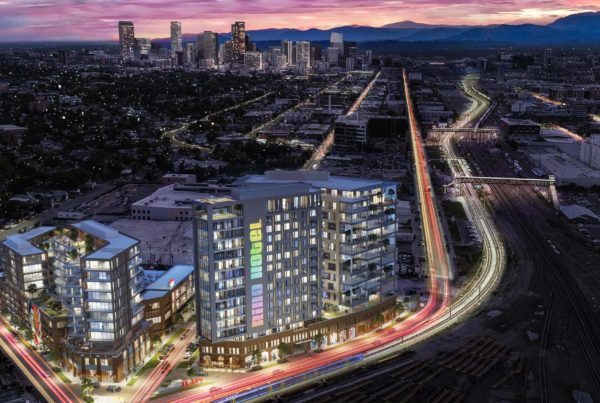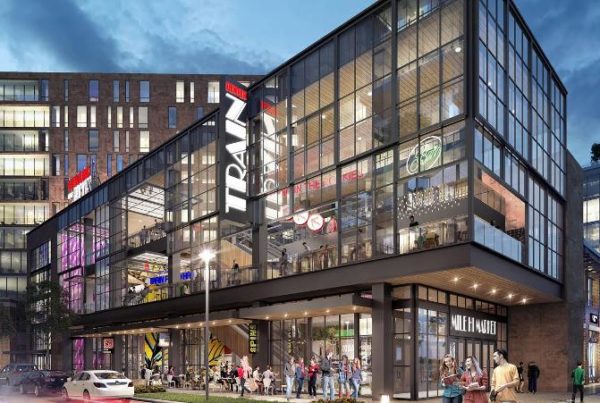Julia Capp and Denis Montel on their city, their growing Asian audience, and more
At Parisian architecture and design firm Rena Dumas Architecture Interieure (RDAI), Julia Capp serves as managing director and design department director. Denis Montel is managing director and artistic director of both RDAI and RDAI-Architecture, which he co-founded in 2007 with Rena Dumas and Nicolas Karmochkine.
The firm has worked on design projects that include Hermès and Yves Saint Laurent stores, as well as major hotels. Recently, they worked on the interiors of 565 Broome SoHo, a condominium which includes architecture by Pritzker-Prize winning designer Renzo Piano. And the company is working in Taipei, Taiwan, on a mixed-use building called Bountiful Journey Tower.
We caught up with the Paris-based Ms. Capp, 54, and Mr. Montel, 51, to discuss why Parisians shy away from condominium buildings, their different—but complementary–design styles and more. Mr. Montel spoke through Ms. Capp, who translated his French into English.
Mansion Global: Describe your dream property.
Julia Capp: I’ve been very fortunate several times to get it—an apartment where you’re in the sky. Broome Street is like that. I lived in Hong Kong, and now I live in France, and I love to see the city move in front of my eyes.
MG: What does luxury mean to you?
Denis Montel: Luxury is space with a view, looking over the city. And having a maximum of daylight. It’s about a relative soberness and lack of ostentatious details. A space that’s calm and tranquil in its experience.
JC: I would add that for myself, luxury is about time. Having the time to make things, and living with the materiality that comes from someone’s hands. Also using different materials that come from different places. The furniture that we use is often from a particular craftsman, and it takes time to curate it.
DM: The relationship with time is important, to be able to have something that is contemporary but lasts in time. That in years to come, it’s still pertinent and still a wonderful experience. It’s indémodable as they say in French, it doesn’t go out out of fashion.
MG: What area do you think is the next hub for luxury properties?
JC: We’re having more and more requests for luxury properties in Asia—in Taiwan, Beijing and Shanghai. That’s new for us.
There’s a new generation of savvy, wealthy Chinese and Asians who want to live in big cities and have very high-end tastes.
MG: What’s the biggest surprise in the luxury real estate market now?
DM: In a project we’re doing in Taiwan, there’s a quest to really have an experience when they walk into the lobby, a bit in the way you expect people to have an experience in the retail situation. They want the clients to have an experience when they go into the lobby, whereas we tend to design more calming spaces.
JC: For the interiors of Broome Street, which we designed hand-in-hand with Renzo Piano, we really wanted them to be intuitive and natural. We weren’t looking for something that jumped out. We wanted something that felt natural to be in.
DM: We designed them so people could really live in them, and not be entertained by them.
MG: What’s your favorite part of your home?
JC: A mix between the kitchen and the dining room. My kitchen opens onto the dining room and then onto the living room and I love cooking, and I Iike cooking with my friends around. I like the exchange between the spaces. I have a lot of artwork in my lounge space so it all mixes together. I love open entertaining. That’s the way of modern living, and that’s what we’ve done at Broome Street.
DM: The kitchen. The way I live in my apartment, it’s the most convivial space.
MG: What best describes the theme to your home and why?
DM: My home is very minimal.
JC: He lives in a Haussmann apartment with beautiful moldings and very little furniture, and it leads onto a park, and it has a green wall in front of it. He has very few objects, and he likes the calm.
On the other hand, I live in a very modern apartment on the 11th floor with a view all over Paris, including the Eiffel Tower, which I call my tourist view. I have a lot of stuff in it.
DM: It’s crowded.
JC: I have a lot of collections of things, lots of memories. But it’s all very curated.
DM: That’s why we work together, we are complementary. Our places are very different.
MG: What’s the most valuable amenity to have in a home right now?
DM: What’s interesting is that gyms and spas are included in all luxury buildings these days. It’s strange since they’re on every corner.
We worked in Taichung in Taiwan, and an amenity they had was an apartment in a building that could be used for parties or special dinners by people in the building. You could have a 300-square-meter apartment to use while owning an apartment of just 150 square meters.
JC: The idea of having a private club where you can plan events is really interesting. I run a farmers market and I’m very active in my community, and having a communal space where you can get together is coming back again.
MG: What’s your best piece of real estate advice?
JC: Location. But what I mean by location is physically what you see from your location. For me, that idea of the view, or your perception of a natural environment. It’s not about the part of the city the home is in.
MG: What’s going on in the news that will have the biggest impact on the luxury real estate market?
DM: We live in such an unstable world that it’s difficult to predict. The cycles are more rapid in terms of prices coming up and going down. It’s difficult to predict.
JC: We question whether luxury condominiums can have a place in Paris. They don’t exist in Paris. We don’t have luxury towers with amenities.
DM: For a while we’ve been questioning whether this style, which is American, but has become popular in Asia, Singapore, China and London, will ever come here. For now, people seem to be resisting it.
JC: In a conference I was at recently someone said it was because in the French culture people are afraid of losing their privacy
MG: If you had a choice of living in a new development or a prime resale property, which would you choose and why?
DM: I’d like to live at Broome Street, with those amenities, up high.
JC: I think he’s going with the penthouse, which has a terrace. Me too, I really enjoy that way of living.
DM: I’m a very urban person and this is a true expression of urban luxury. I loving being in the city.
JM: It’s about celebrating living in New York. When we designed the interior, our mood board had photos of New York City, showing flickering lights and the the true electricity of New York City. When you can live up high, you have an amazing experience of the environment, and what changes every day. It’s like a painting canvas.


